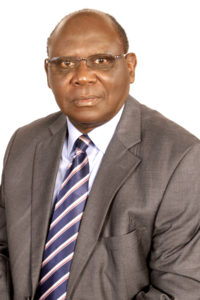African Rural University (ARU) strives to produce visionary female leaders who will champion for rural transformation
By Bonface Otieno Kanyamwaya
African Rural University (ARU) is an all-women rural university in Africa that focuses on providing women with the necessary knowledge, skills and experience to be effective rural development ambassadors and change agents.
“Using methodologies developed and proven to be effective by Uganda Rural Development Training (URDT) over more than two decades, ARU graduates are able to help people improve their lives and transform their communities,” says Prof Joseph Mukiibi, the institution’s Vice Chancellor who, in March 2016, took over from the late Prof Denis Okello Atwaru.
The university, the VC adds, equips students with a wide range of practical skills that can enable them to effectively conduct community development planning, among other things.
“Our curriculum is highly contextual and targets a largely marginalised group in the society and in the region’s higher education sector,” says Prof Mukiibi.The education is designed to tap in the intrinsic values of women as leaders and nurturers of societies.
The university focuses on training women on how to be effective rural development professionals by extensively involving them in relevant service-learning experiences. Prof Mukiibi believes this kind of training (for women) is very necessary if the local universities are to contribute significantly to the growth of the region’s economy.
The VC says the institution’s transformative methodology for rural development is based on visionary and creative approaches and systems thinking.
“The visionary approach permits genuine democratic participation by rural people and communities in development activities, thereby improving their ownership and leadership of development processes,” says Prof Mukiibi.
In the methodology, he says, people are accepted as protagonists in the development process. They engage in determining what truly matters to them, their families, and the community. They also formulate a clear vision of what they want in contrast to their current situation, and finally, they can use the discrepancy between what they have and what they want in order to make informed choices on how to meet their aspirations. They generate commitment and take action in favour of the desired future.
In sharp contrast to traditional approaches to rural development, where rural people are treated as the object of development, the VC says the visionary approach treats rural people as the subject of development. It recognises that rural people are a repository of valuable knowledge and information that can be used to improve their livelihoods.
In this approach, not only do people remain in touch with what matters to them or that which they want to create, their vision, but also the knowledge and skills learned remain resident with people, thus enabling them to become functionally literate in a variety of domains including water management, rural technologies, human rights, environment, education and household incomes.
The VC says, “For development to take root in the communities there must be a structural shift”. To effect such a shift, the best leverage points in the system must be identified. In social economic systems, the key leverage points are individuals. Through their aspirations and conscious choices, they can shift their own life orientations from one where they merely react or adapt to the events as they occur, to one in which they themselves are the creators of the events in their lives. In the reactive or responsive orientation, typically referred to as problem solving, people react or adapt to circumstances. Often the levels of emotions determine action.” They then relax after the problem is perceived to be over.
Recognition beyond boundaries
As a result of their unique model of teaching, ARU has been recognised locally, regionally and globally for excellence in teaching and learning, as well as its commitment to research, ICT, innovations and enterprise.
Webometrics rankings of world universities, for instance, in February 2014,ranked ARU at number 25 in the region for research and ICT use.
Also, The East African University Survey 2012 by the Centre for Public and Social Research International (CPS) placed ARU at position 94 out of the best 100 universities in the east Africa region.
Additionally, Ashoka’s 2014 Change Makers Summit in Nairobi recognised ARU as one of the leading institutions of higher learning in east Africa for offering a training programme that brings real change in the rural communities.

Prof Joseph Mukiibi, Vice Chancellor, African Rural University
Creating partnerships
Over the years, the university, in collaboration with the Uganda Rural Development and Training Programme, has established partnerships with a number of institutions both locally and internationally.
The institution has functional partnerships governed by memoranda of understanding with local governments, where its students undertake practical projects, working with communities as social laboratories. The ARU students have provided functional capacity building to the local government leadership at sub-county levels, particularly in the greater Kibaale districts, to implement the visionary approach in planning, programme delivery and accountability.
On academic front, ARU has partnered with International Development Research Centre (IDRC) in Canada, International Land Coalition in Italy, and Makerere Institute of Social Research (MISR) in Uganda, among others.
Prof Mukiibi says in the next five years they are going to roll out more development-oriented programmes cutting across various fields, including Bachelor of Education for Rural Transformation, Bachelor of Environmental Science, Bachelor of Agriculture and Innovations, Diploma and Certificate programmes in Environmental Journalism, Environmental Science as well as a programme on African Studies.

